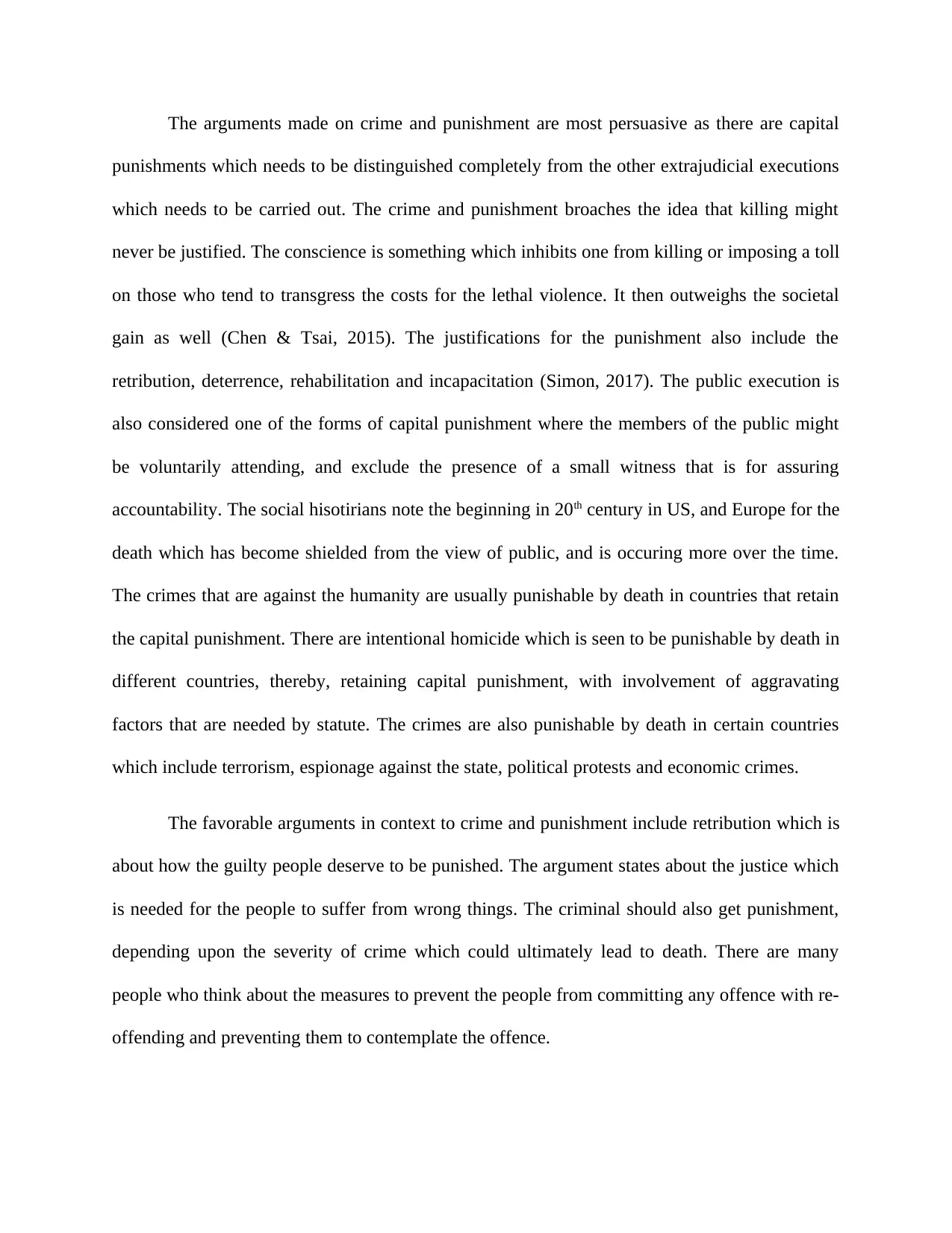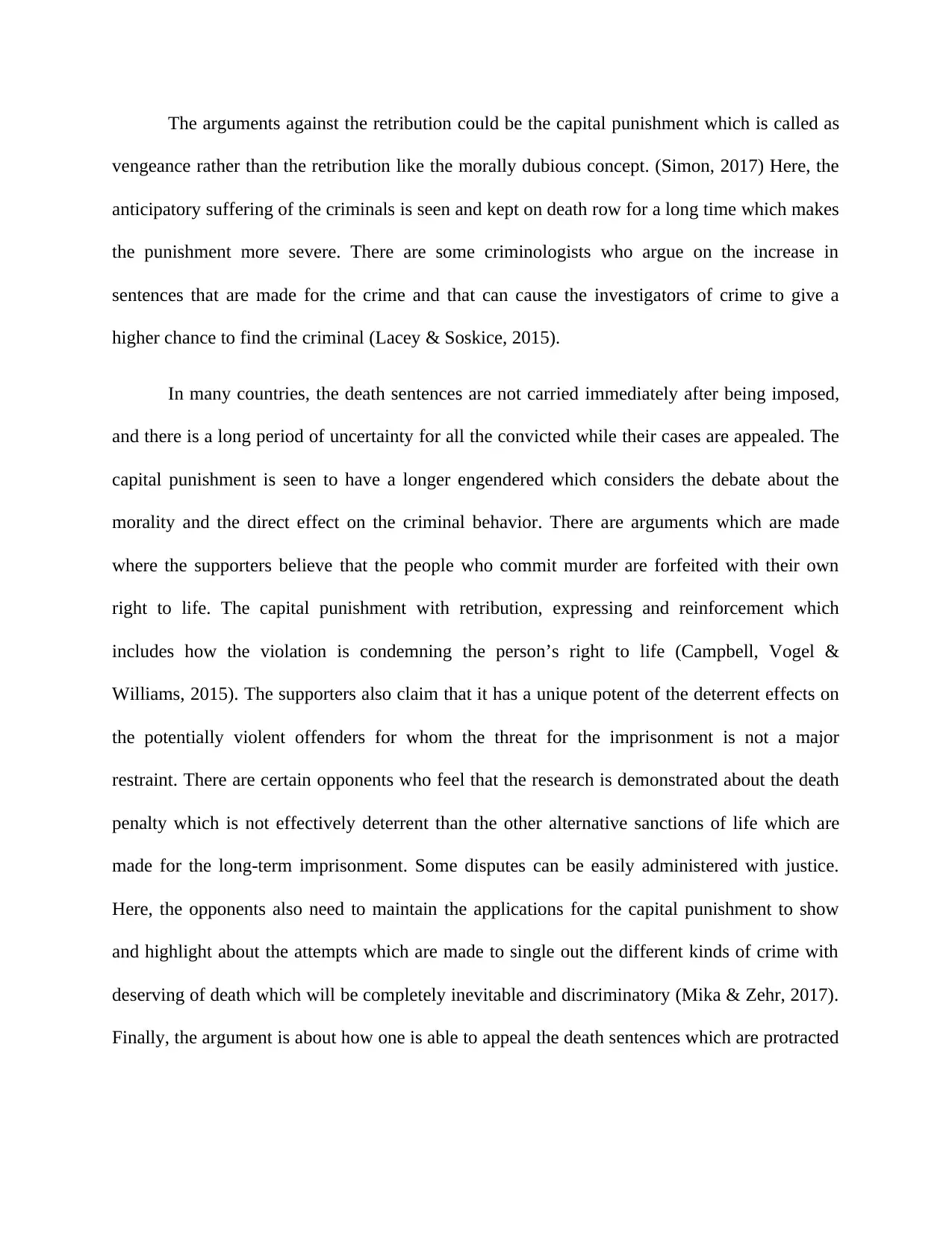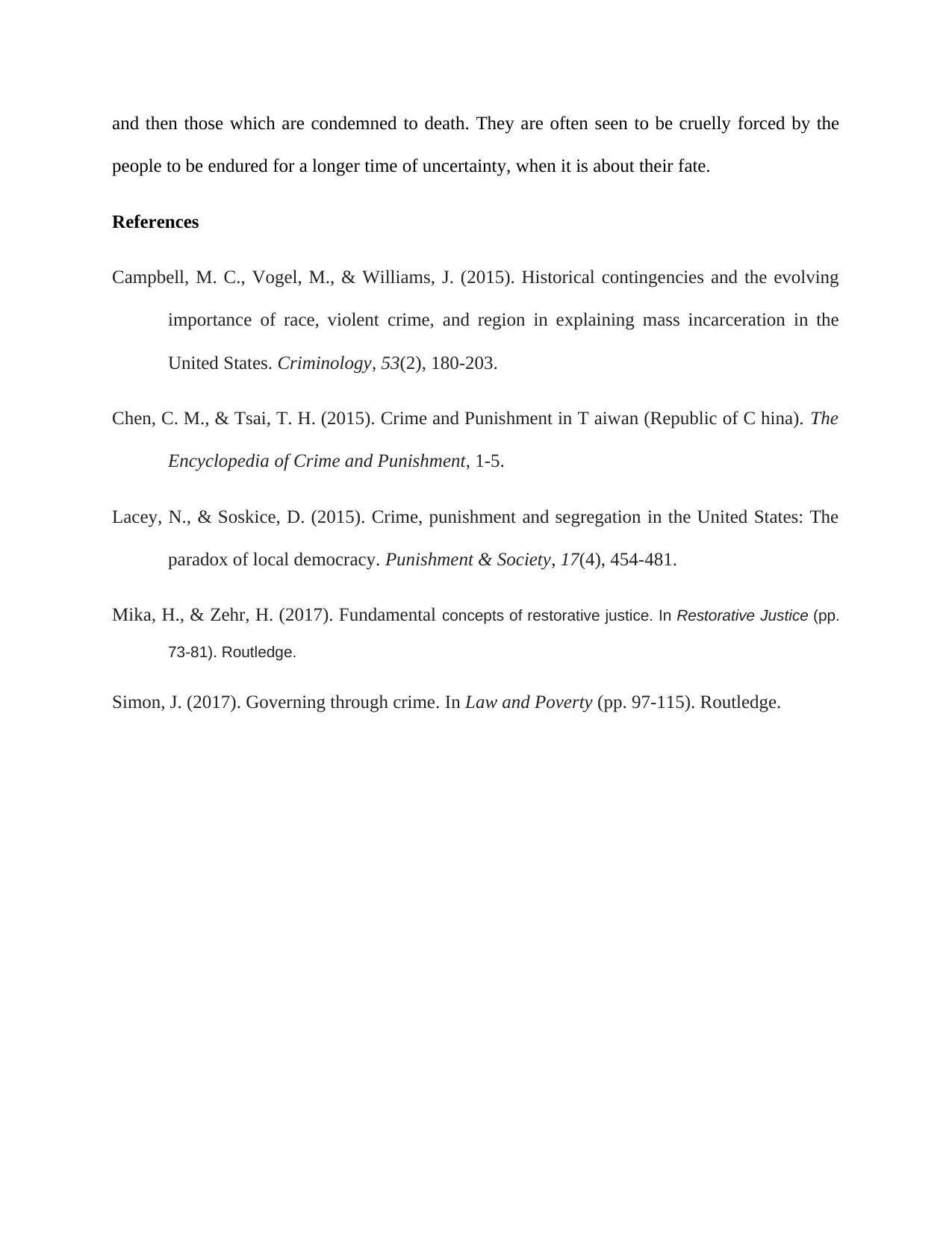Analysis of Persuasive Arguments on Death Penalty and Crime
VerifiedAdded on 2021/12/07
|4
|969
|199
Essay
AI Summary
This essay explores the multifaceted arguments surrounding the death penalty, focusing on the concepts of crime and punishment. It begins by examining the justifications for capital punishment, including retribution, deterrence, rehabilitation, and incapacitation. The essay then delves into the arguments for and against retribution, analyzing how the guilty deserve to be punished and the role of justice. It explores the role of public execution and the historical shift in the view of capital punishment. The essay also addresses the arguments against retribution, such as the moral dubiousness of capital punishment and the potential for discriminatory application, while acknowledging the suffering of those on death row. The essay concludes by considering the arguments that the death penalty is not a deterrent and highlights the debate about morality and the direct effect on criminal behavior, and the need to appeal death sentences.
1 out of 4











![[object Object]](/_next/static/media/star-bottom.7253800d.svg)